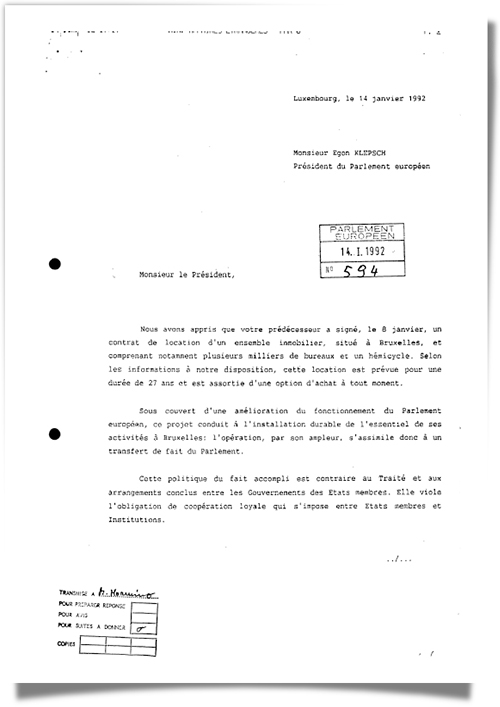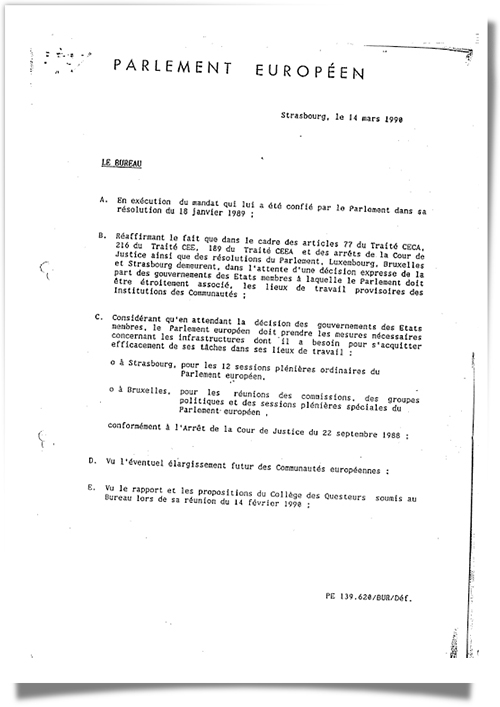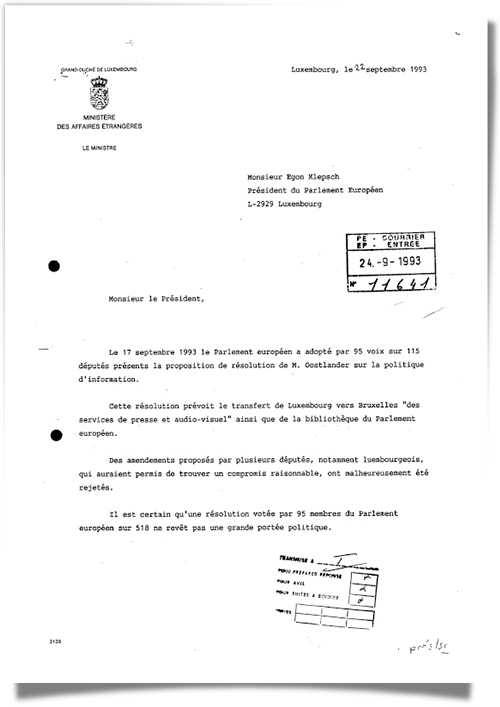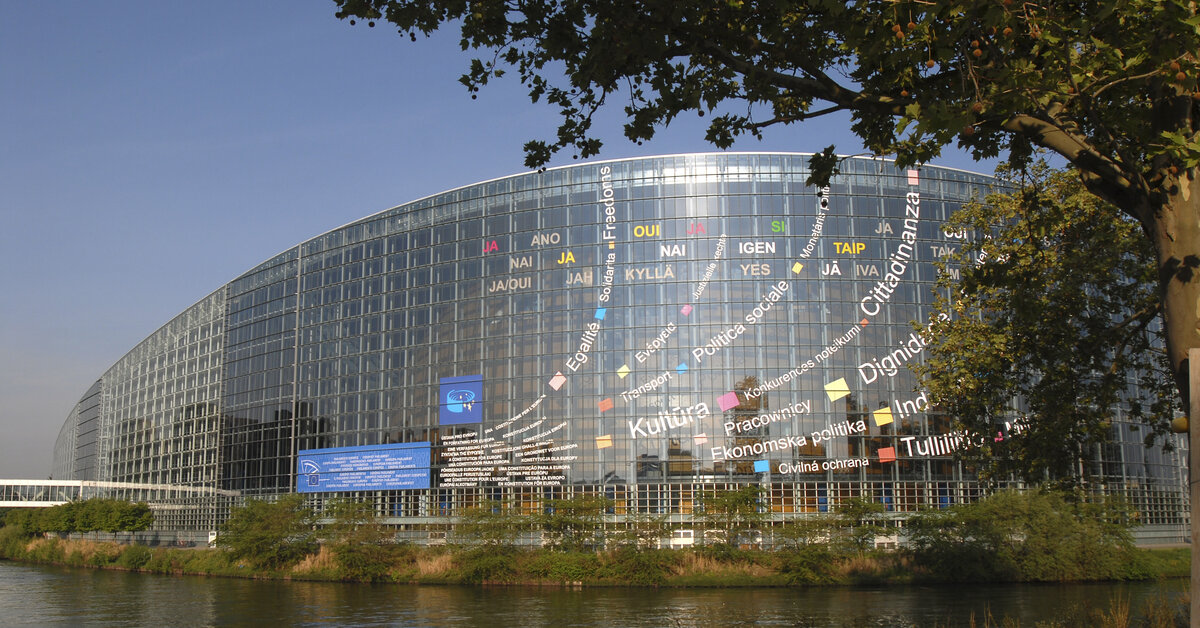Egon Klepsch had just taken up his term of office as President of the European Parliament when the French and Luxembourgish governments began to express their concern regarding the seats of the European Parliament. On 14 January 1992, he received a letter explaining that his predecessor, President Enrique Barón Crespo, had signed a lease with option to purchase a building complex in Brussels with offices and a hemicycle that had been carried out with support from the Belgian authorities in the previous week.
 Joint letter from the French and Luxembourgish governments on the seats of the European Parliament (Download the document here in French - PDF)
Joint letter from the French and Luxembourgish governments on the seats of the European Parliament (Download the document here in French - PDF)
Before Enrique Barón Crespo, this project to provide offices for MEPs in Brussels had been ongoing since the presidencies of Pieter Dankert, Pierre Pflimlin and Lord Henry Plumb, to accommodate their work during the weeks in which they were not at the plenary session in Strasbourg. At the same time, there was a plan to rent additional office space in Strasbourg.
[The Bureau] HEREBY DECIDES:
Concerning Brussels:
— to instruct the President and the Secretary-General to rent the D1, D2 and D3 buildings in order to ensure the availability of 2600 office space and 300 meeting rooms in a contiguous complex and thus to meet the functional needs of the institution.
—to release buildings previously occupied, depending on their own needs, which are no longer needed (...)
This decision also provides for the rental of additional premises in Strasbourg.
 Bureau decision of 14 March 1990 (Download the document here in French - PDF)
Bureau decision of 14 March 1990 (Download the document here in French - PDF)
The French and Luxembourgish governments expressed strong protest against this project, which, in their opinion, would lead to the permanent establishment of Parliament’s essential activities in Brussels. They equated this process with a de facto transfer of Parliament, which they claimed would be contrary to the Treaty and the agreements between the governments of the Member States and the principle of cooperation between Member States and the EU institutions.
At the end of 1992, President Klepsch decided to overrule the financial controller’s objection to the real estate project in Brussels and proceed with the agreement to expand Parliament’s presence in Brussels.

There was also the question of the construction of the new Parliament building in Strasbourg. In the above interview, Klepsch remarks that:
“I also took the view that it was important to have the plenary in Strasbourg. Because the Council and the Commission had to go there every Wednesday to give reports. And the Parliament could discuss them directly. This was an excellent opportunity to make the Parliament visible to the public, as everything else was after all in Brussels [...] and so raise Strasbourg's profile.”
 Outside view of the Louise Weiss building of the European Parliament in Strasbourg. Photo: © European Union, Building: © Architect: Architecture Studio
Outside view of the Louise Weiss building of the European Parliament in Strasbourg. Photo: © European Union, Building: © Architect: Architecture Studio
